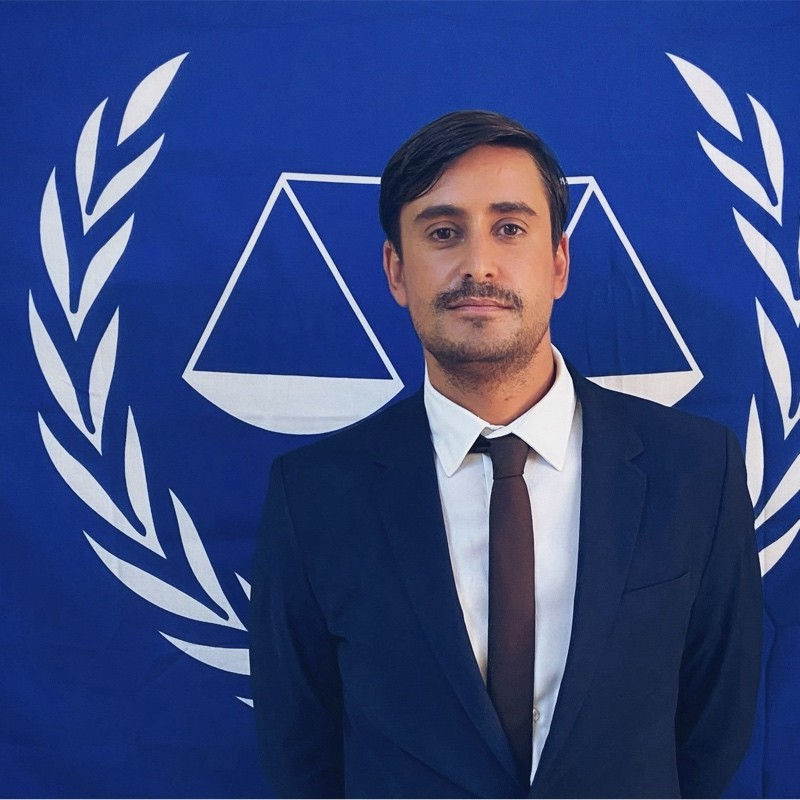Lessons From International Tribunals: In Conversation with Anabela Alves
- Aidan Johnson

- Jul 1, 2024
- 22 min read
Updated: Jul 6, 2025
Anabela Alves is a Portuguese lawyer having served as Legal Advisor to Chambers at the ICTY and later as Legal Advisor to the Presidency and Chambers at the ICC. She has also worked extensively on advising, training, and capacity building for various national judiciaries.
CJLPA: Thank you for taking the time to interview with the Cambridge Journal of Law, Politics, and Art to discuss your incredibly influential law career, ranging from work at the International Criminal Court in its early days, to your time at the OSCE (Organization for Security and Co-operation in Europe) advising on law, justice, and human rights, and with the International Nuremberg Principles Academy, working on capacity-building and training for various judiciaries. That’s just a small snapshot of your extensive CV, which I hope we’ll be able to explore a little bit more deeply.
So, to that end, I’d like to start with your time as a Lawyer with Judges at the International Criminal Tribunal for the Former Yugoslavia (ICTY). How did your time in that setting influence your outlook on the importance of accountability and justice in the case of human rights violations?
Anabela Alves: Thank you very much. Thank you, first of all, for inviting me to this interview. It is a pleasure to join you today. And now I will try to address your questions as honestly as I always do, giving you just a glimpse into what it was like to opt for the different legal career paths and experiences that I had with these international organizations. So, I joined the ICTY in 2000. It was a decision I made prior to completing my LLM that I was doing in London, which focused on international criminal law and human rights. I had already done an LLB European law honours degree, also in London, and was working part-time on three jobs at university, so it took quite some determination on my part to actually reach The Hague. At the time, I was working as a paralegal at D J Freeman solicitors, and I was also being encouraged to obtain British citizenship to follow a career with the British Foreign Office, while partners at D J Freeman encouraged me to pursue my full qualification to be retained by the law firm. When I submitted my LLM thesis on international legal responsibility for East Timor, the School of Oriental and African Studies awarded me a merit for my research and invited me to pursue a PhD while lecturing part time. However, besides the additional financial burden that this would entail, and other considerations of settling in London longer term, I knew then that I wanted to work for an international justice mechanism.
Having made up my mind, and with my passion for human rights and access to justice for all as a driving force, I landed in The Hague. At the ICTY at the time, there were not enough courtrooms available for the many cases and complex legal issues raised in the myriad of motions filed by both parties to the criminal proceedings. As advisor to international judges of the Trial Chamber that decided to raise the judicial workload to a higher level and hear two large criminal cases simultaneously—the Krstić case (Srebrenica genocide) and the Kvočka et al case (a rape camp case of the Prijedor area in Bosnia and Herzegovina)—meant that I, like many of my colleagues, were on legal duty 24/7, 7 days a week. The pressure was high.Among the many duties assigned to me as legal officer was that of sitting every day in the courtroom summarizing witness testimony to be later deliberated by judges and to be included in draft judgment or decisions that we as legal officers had to prepare for chambers. Witnessing firsthand the braveness of countless victims who appeared as witnesses in court gave me the strength I needed to continue doing my job without failing or discouraging. For victims of serious crimes such as genocide, crimes against humanity, and war crimes, having the opportunity to tell their experience to a court of law, and often confronting their perpetrators in a courtroom was liberating. Empowering victim witnesses to tell their story was the only way to find some inner peace, knowing that those who committed the horrendous crimes against their fellow human beings will not go unpunished. One should not undermine the impact serious crimes have on victims and affected communities, and the need for accountability, assurances of non-repetition ad seeing justice being done. Only through restorative justice can one envisage reconciliation among communities and sustainable peace. Unfortunately, not all victims saw just satisfaction, and many victims of the Balkan Wars are still waiting for justice to be done. Equally, the role of victims in the former Yugoslavia was limited to that of witnesses when being called by the prosecutor or by the defence to testify. At the ad hoc tribunals, victims were not entitled to participate in the proceedings, or obtain reparations under the ICTY’s legal framework. And as a consequence, without the proper support of civil society, the majority of countless victims felt that international justice had failed them.




